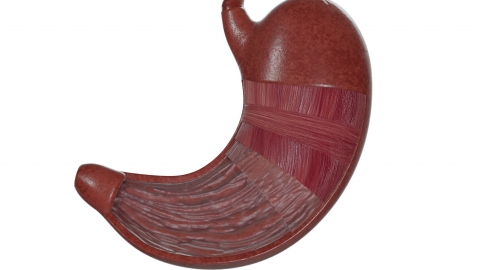How to treat chronic antral gastritis
Generally, chronic antral gastritis may be caused by irregular eating habits, excessive gastric acid secretion, low immune function, long-term use of nonsteroidal anti-inflammatory drugs (NSAIDs), or Helicobacter pylori infection. It is recommended to seek timely medical attention, identify the underlying cause, and recover through general treatment and medication under the guidance of a qualified physician. Detailed analysis is as follows:

1. Irregular Diet
Long-term irregular eating habits, such as overeating or excessive alcohol consumption, can irritate the gastrointestinal mucosa. Prolonged inflammatory stimulation may lead to chronic antral gastritis, accompanied by symptoms such as stomach pain and bloating. It is recommended to improve unhealthy dietary habits promptly and cooperate with medical treatment.
2. Excessive Gastric Acid Secretion
Excessive gastric acid secretion can damage the protective barrier of the gastric mucosa, making it susceptible to erosion by gastric acid and digestive enzymes, resulting in inflammation in the antral region and causing chronic antral gastritis. Symptoms may include heartburn, acid regurgitation, and stomach pain. It is recommended to use medications such as sodium bicarbonate tablets, famotidine tablets, or compound aluminum hydroxide tablets to control gastric acid secretion and protect the gastric mucosa.
3. Low Immune Function
Autoimmune diseases can lead to reduced immune function. In such cases, the immune system mistakenly identifies and attacks cells in the gastric mucosa, leading to chronic antral gastritis. Symptoms may include anemia, weight loss, and fatigue. It is recommended to seek timely medical attention and use medications such as prednisolone tablets, cyclophosphamide tablets, or esomeprazole magnesium delayed-release capsules to suppress abnormal immune responses.
4. Long-Term Use of Nonsteroidal Anti-Inflammatory Drugs (NSAIDs)
Long-term and excessive use of NSAIDs can inhibit cyclooxygenase activity, reduce prostaglandin synthesis, weaken the self-protective capacity of the gastric mucosa, and make it prone to erosion by gastric acid and digestive enzymes, thereby causing chronic antral gastritis. Symptoms may include abdominal pain, indigestion, and gastrointestinal bleeding. It is recommended to discontinue NSAID use and take medications such as pantoprazole sodium delayed-release tablets, etamsylate injection, or domperidone tablets.
5. Helicobacter pylori Infection
Helicobacter pylori infects the gastric mucosa, triggering an inflammatory response and damaging the mucosal barrier, allowing gastric acid and digestive enzymes to erode the gastric wall and cause inflammation in the antral region. Symptoms may include abdominal pain, acid regurgitation, and belching. It is recommended to seek timely medical attention and follow medical advice to use medications such as amoxicillin capsules, clarithromycin dispersible tablets, or hydrotalcite chewable tablets to eradicate Helicobacter pylori.
When treating chronic antral gastritis, appropriate treatment methods should be selected based on individual conditions. At the same time, maintaining good lifestyle habits and a positive mindset is also important.




